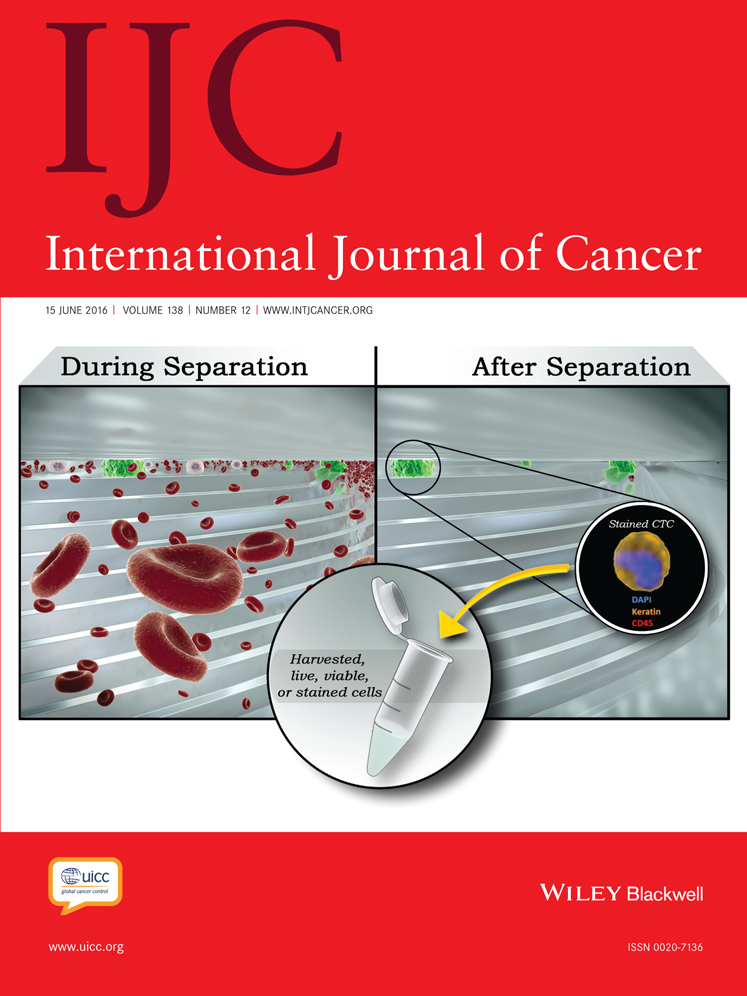Clinical significance of circulating plasma DNA in gastric cancer
Abstract
With the progression of molecular techniques, the detection of circulating plasma DNA (cpDNA) is clinically feasible. However, the role of the cpDNA levels in gastric cancer is not well understood. This study assessed the mutational profile in primary tumors and clarified the clinical utility of quantitative and qualitative cpDNA alterations in 277 patients with advanced gastric cancer. The concentrations of cpDNA were measured by TaqMan qPCR, and 68 mutations in 8 genes were studied for cpDNA mutations. The median cpDNA concentrations in patients with stages I, II, and III gastric cancer were 3979, 3390 and 4278 copies/mL, respectively, and increased to 11,380 copies/mL in patients with Stage IV gastric cancer (p < 0.001). Among the 35 patients harboring cpDNA mutations, Stage IV patients (100%) were more likely to display high cpDNA levels than were Stage I (33.3%), II (75%) and III patients (66.7%) (p = 0.037). Patients displaying high cpDNA levels were more likely to experience peritoneal recurrence and exhibited significantly lower 5-year overall survival rates (39.2% vs. 45.8%, p = 0.039) than did patients displaying low cpDNA levels. Only for late stage (Stages III or IV) gastric cancer, patients harboring cpDNA mutations were more likely to experience vascular invasion (20% vs. 2.4%, p = 0.036) and exhibited a lower 5-year overall survival rate than did those lacking cpDNA mutations (5.6% vs. 31.5%, p = 0.028). High cpDNA levels are associated with peritoneal recurrence and poor prognosis in patients with advanced gastric cancer; harboring cpDNA mutations is associated with poor prognosis among patients with late stage gastric cancer.
Abstract
What's new?
Patients whose gastric cancer returns despite curative surgery tend to suffer poor prognosis. According to the authors of this study; however, it may be possible to catch recurrent disease before it reaches advanced stages using circulating plasma (cp) DNA, a blood-based biomarker. In advanced gastric cancer patients, cpDNA levels were associated with tumor recurrence and initial recurrence pattern, with high cpDNA levels signaling an increased likelihood of peritoneal recurrence versus locoregional or distant recurrence. Primary tumor mutations in cpDNA were linked to reductions in 5-year survival, suggesting that cpDNA mutational status can predict poor prognosis in late-stage disease.




